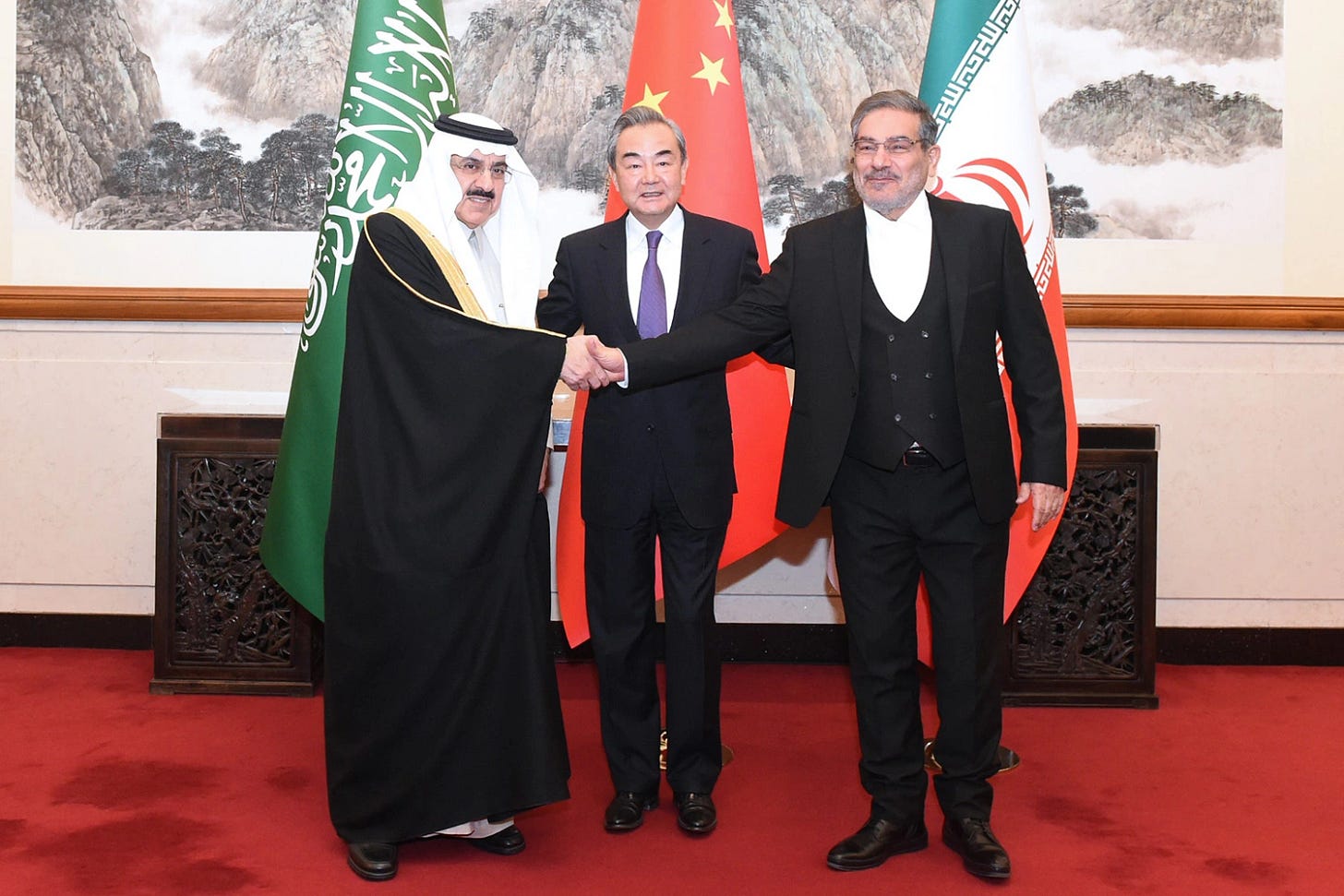End of the Middle Eastern Cold War?
Saudi Arabia and Iran are restoring diplomatic relations, with help from China.
For decades Saudi Arabia and Iran have engaged in proxy conflicts across West Asia and parts of North Africa for influential dominance. Due to ideology and religious identity being at the forefront of the struggle many academics refer the Saudi-Iran tensions as the “Middle Eastern Cold War”. The struggle for influence reached a boiling point following the Arab Spring in 2011 and the subsequent civil wars in Syria and Yemen which have claimed nearly 1,000,000 lives in total.
Domestically, both Saudi Arabia and Iran practice discriminatory policies against Shia and Sunni minority groups respectively with the execution of prominent Shia cleric Nimr Baqir Al Nimr in 2016 further igniting tensions between the two regional powers. However, on March 10, 2023, in a surprising turn Saudi Arabia and Iran have announced the restoration of diplomatic relations in an agreement brokered by China after five rounds of reconciliation talks in Iraq.
The agreement received praise from a variety of nations including the U.S, Egypt and Pakistan with Israel expressing disappointment as its attempt at constructing an anti-Iran bloc would falter should relations between Saudi Arabia and Iran improve. Many analysts have expressed optimism that this agreement could lead to normalized relations between the two states. If this were to happen it could bring a gradual end to the “Middle Eastern Cold War” and contribute to ongoing peace processes in Syria and Yemen.
The agreement also comes at an interesting period with both countries currently ruled by hard line administrations with Crown Prince Bin Salman known for his anti-Iran stance Ebrahim Raisi’s hard line anti-western administration. Furthermore, some analysts have also proposed that Saudi Arabia may normalize relations with Israel akin to other Arab states in order to strengthen ties with the west and form an anti-Iran bloc which would have made this agreement impossible under these circumstances.
Despite this, it is important to note that this is only the first step and that hurdles will likely remain for many years to come especially concerning complex issues such as the civil wars in the aforementioned countries, political influence in the region and the tensions between Sunnis and Shias. Furthermore, the de-escalating military tensions and reduction of arms race will also pose as challenging topics that could undermine efforts to normalize relations.
In recent years, Saudi Arabia has drastically increased its military budget and purchased modern weaponry from the U.S and Europe. Likewise, following the rupture of the JCPOA agreement by the Trump administration, Iran has made significant progress in its nuclear programme. Nevertheless, the restoration of diplomatic relations remains an important first step to recovery and easing of tensions even if normalization is unachievable within the near future.
Sources
https://www.politico.com/news/2023/03/12/iran-saudi-arabia-reaction-00086666






